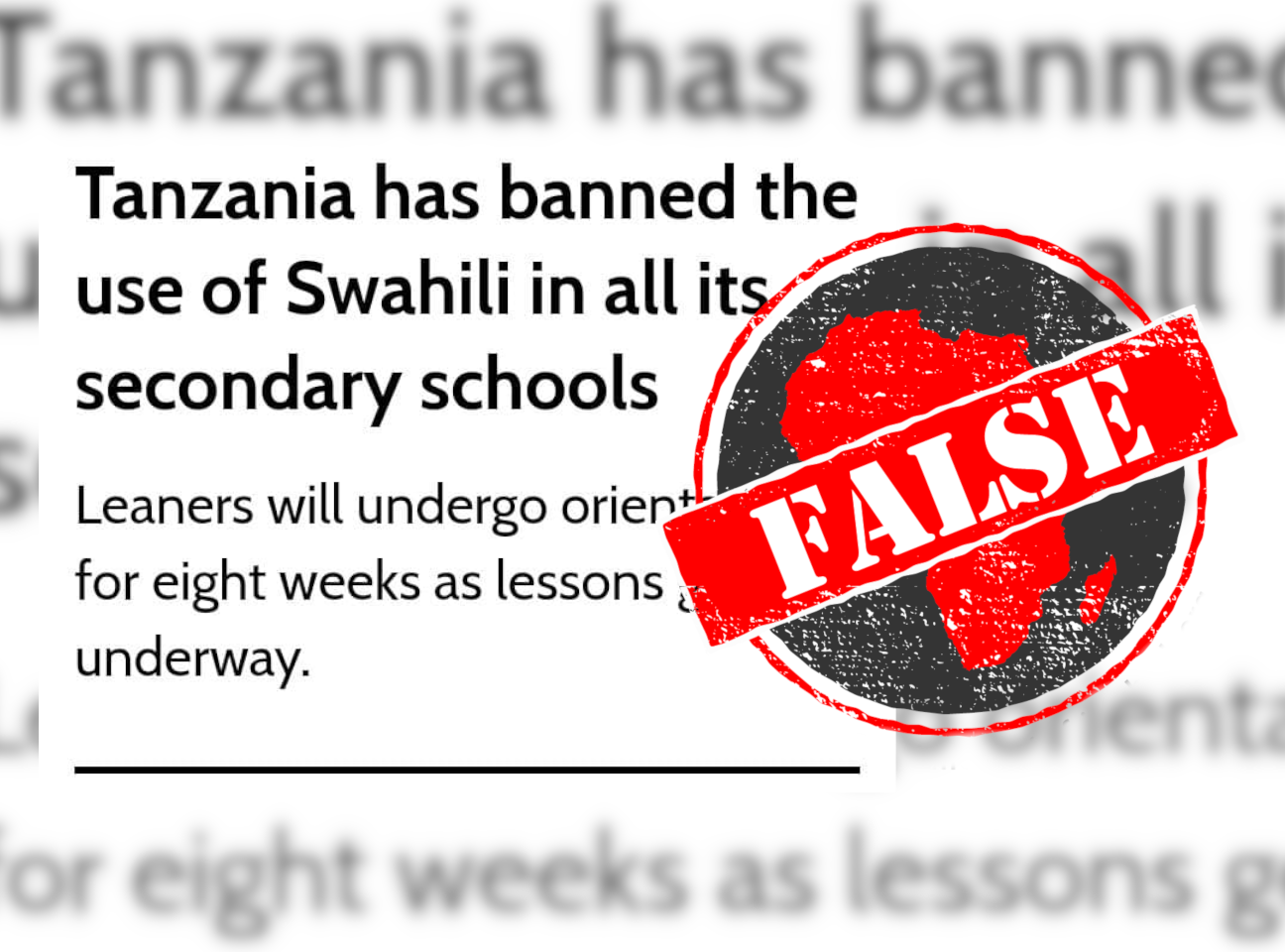IN SHORT: With Tanzanians widely associated with Kiswahili, perhaps more than any other country, a ban on using the language as a medium of instruction would be surprising.
Tanzania has banned the use of Kiswahili in all its secondary schools, claim messages circulating on Facebook since January 2023.
One post reads: “Tanzania has banned the use of Swahili in all its secondary schools. Learners will undergo orientation for eight weeks as lessons get underway.”
Tanzania is an East African country whose official languages are Kiswahili and English.
Kiswahili is the country’s national language, with virtually all Tanzanians speaking it.
In 2022, Tanzanian education stakeholders pondered whether English or Kiswahili should be used as an instruction language in schools.
Kiswahili has over the years been used as the language of instruction in pre-school and primary level. English and Kiswahili are used in secondary schools and in tertiary education.
The claim has also been posted here, here, here, and here.
But is it true?

No ban on Kiswahili in secondary schools
On 13 January, the Twitter account of Tanzania’s government chief spokesperson tweeted that the claim was “FAKE”.
The tweet reads in Kiswahili: “Tanzania haijafuta lugha ya Kiswahili katika Shule zake za Sekondari.”
This translates as: “Tanzania has not banned Kiswahili in its secondary schools.”
The tweet includes a screenshot of a message posted by the chief government spokesperson, Gerson Msigwa, dismissing the supposed ban.
“Contrary to this post, Tanzania has not banned the use of the Swahili language in our secondary schools. An official statement on the matter will be released soon,” the post reads.
“However, it is important to note that Tanzania is currently making significant efforts to promote and strengthen the teaching and use of Swahili in schools, as well as sending Swahili teachers to other countries where the number of Swahili speakers is increasing and interest in learning the language is growing.”
In a statement published in Kiswahili a day later, the Tanzanian government declared English and Kiswahili to be the nation’s official languages.
According to the statement, English and Kiswahili are the official languages of instruction in Tanzanian high schools and colleges. Kiswahili remains the official language in government and primary schools.
Republish our content for free
For publishers: what to do if your post is rated false
A fact-checker has rated your Facebook or Instagram post as “false”, “altered”, “partly false” or “missing context”. This could have serious consequences. What do you do?
Click on our guide for the steps you should follow.
Publishers guideAfrica Check teams up with Facebook
Africa Check is a partner in Meta's third-party fact-checking programme to help stop the spread of false information on social media.
The content we rate as “false” will be downgraded on Facebook and Instagram. This means fewer people will see it.
You can also help identify false information on Facebook. This guide explains how.



Add new comment